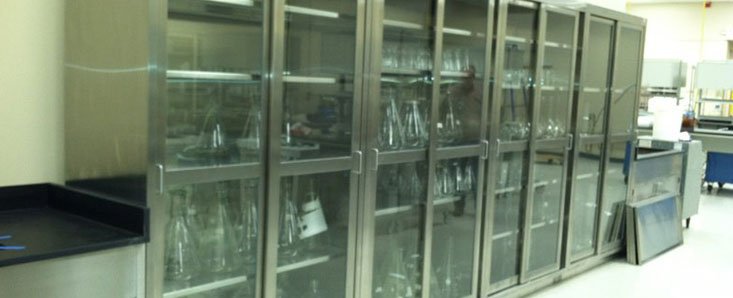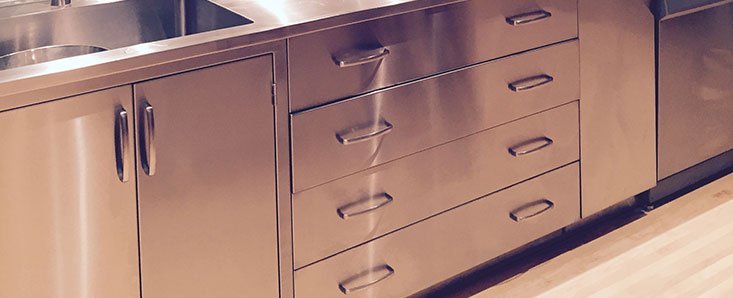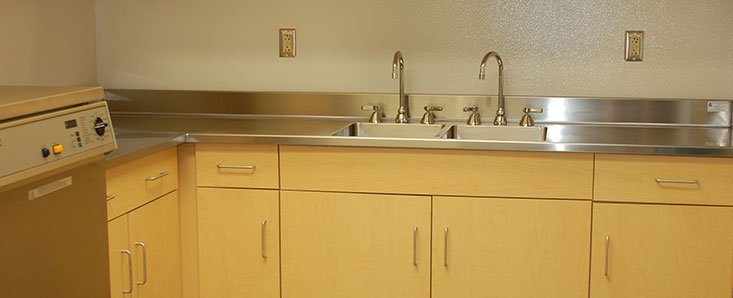The Most Common Uses of Stainless Steel
02.17.2020
| Five factors contribute to making Stainless Steel the ideal material for an extremely wide range of applications: It’s Strength, Corrosion Resistance, 100% Ability to be Recycled, Low Maintenance, and Long Life Cycle make Stainless Steel an essential part of everyday life. Let’s explore some of the most common uses of Stainless Steel in the modern world… |
| Medical |
| |
Stainless Steel is ideal for hygienic environments as it is easily sterilized and resistant to corrosion. It is used in the construction of surgical and dental instruments, kidney dishes and operation tables, as well as other medical equipment such as cannulas, steam sterilizers and MRI scanners.
Surgical implants use stainless steel, along with replacement joints such as artificial hips. In addition, Stainless Steel pins and plates are used to set broken bones in place.
| Architecture & Construction |
Stainless steel first came to prominence in construction during the art-deco period. Famously, the upper portion of the Chrysler Building (pictured above) was constructed from stainless steel.
Due to its strength, flexibility and resistance to corrosion, stainless steel is now commonly used in modern construction. It is used in the exterior cladding for large high impact buildings and can be seen in the interiors too in the form of handrails, counter tops, back-splashes and more.
Stainless Steel is easily welded, has an attractive finish and is low maintenance. Because of this, it is featured prominently in high-profile modern architecture including the Eurostar Terminal in London’s Waterloo Station, the Helix Bridge in Singapore and the One World Trade Center in New York.
The trend towards sustainable building also favors Stainless Steel, which is often comprised of 90% recycled metal. Stainless Steel in a polished or grain finish can also help bring natural light into the building, thus reducing energy consumption.
| Food & Catering |
| |
Stainless steel is used in kitchen accessories, cutlery and cookware. Less ductile grades of steel are used to make knife blades with sharp edges. More ductile grades of steel are used for items that are molded into shape such as cookers, grills, sinks and saucepans. Stainless steel is also used as a finish for refrigerators, freezers, counter-tops and dishwashers.
Stainless Steel is ideal for food production and storage as it does not affect the flavor of food. Stainless Steel’s corrosion resistance is important as some foods like orange juice, can be acidic. Also stainless steel is easily cleaned and antimicrobial, which helps keep undesirable germs at bay.
| Energy & Heavy Industries |
| |
Chemical, Oil, and Gas industries operate in demanding environments involving high wear and highly toxic substances. Special grades of stainless steel have been developed for use in these industries which feature enhanced resistance to corrosion over a wider range of temperatures. High-grade stainless steel is vital in the construction of storage tanks, valves, pipes and other components.
Stainless steel is essential for off-shore oil rigs. Crude oil is extremely corrosive and modern rigs are constructed from high alloyed steel which is tough and lightweight.
Renewable energy technologies including solar, geothermal, hydro and wind power also use stainless steel components as it is able to withstand the rigors of highly corrosive sea water environments.
| Laboratory |
| |
As with Hospitals, Food Service, Residential and Architectural applications; Stainless Steel is used highly in laboratories. Counter-tops, cabinetry, drain troughs, sinks, fume hoods, chairs, desks, tables, scientific utensils and mobile cabinets are just a few items stainless steel is used in. Again, going back to the properties of stainless steel, it is non-porous, corrosion resistant and carries anti-bacterial properties which are ideal in a laboratory setting.
| Residential |
| |
This is a subject we have blogged about previously (which can be found HERE). Stainless Steel is trending for use in residential kitchens because of the same uses and properties stated above for commercial and catering applications.
Stainless Steel in non-porous, making it resistant to food, even fruits and other acidic foods. It is anti-bacterial and easy to clean and maintain.
Stainless Steel is rapidly trending for use in modern kitchen designs for its sleek, polished look that is not only aesthetically pleasing but is also desired to match the popularity of stainless steel appliances.
Stainless Steel is a versatile metal to use for various applications. CONTACT US to help you with your next Stainless Steel project.
From design to fabrication, Stainless Fabricators, Inc. will EXCEED your expectations!













